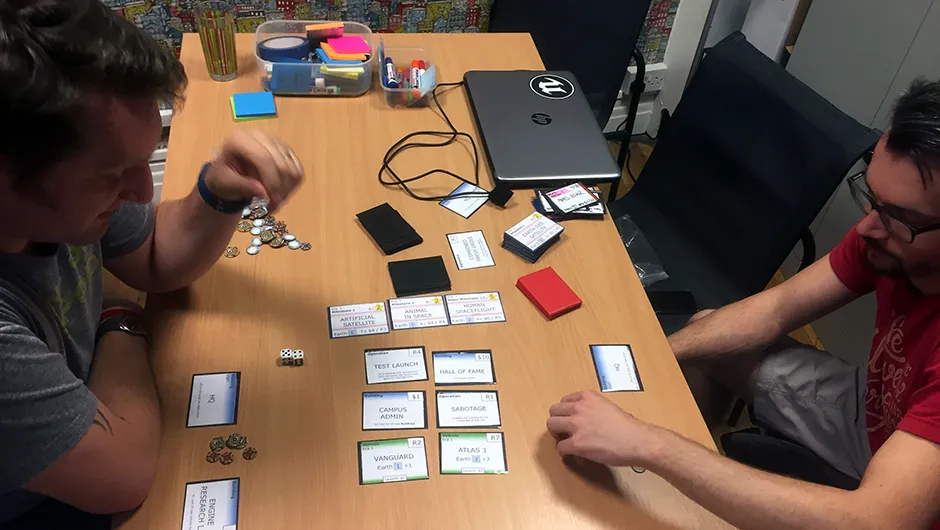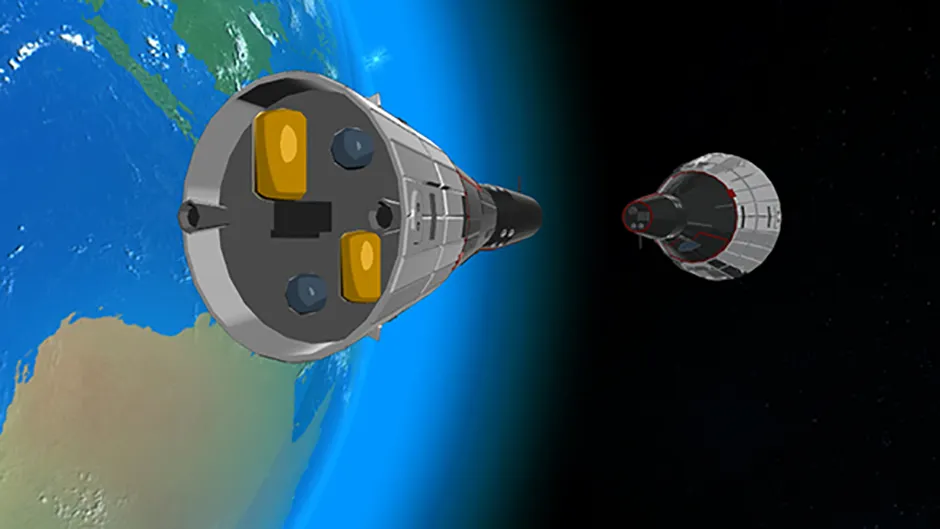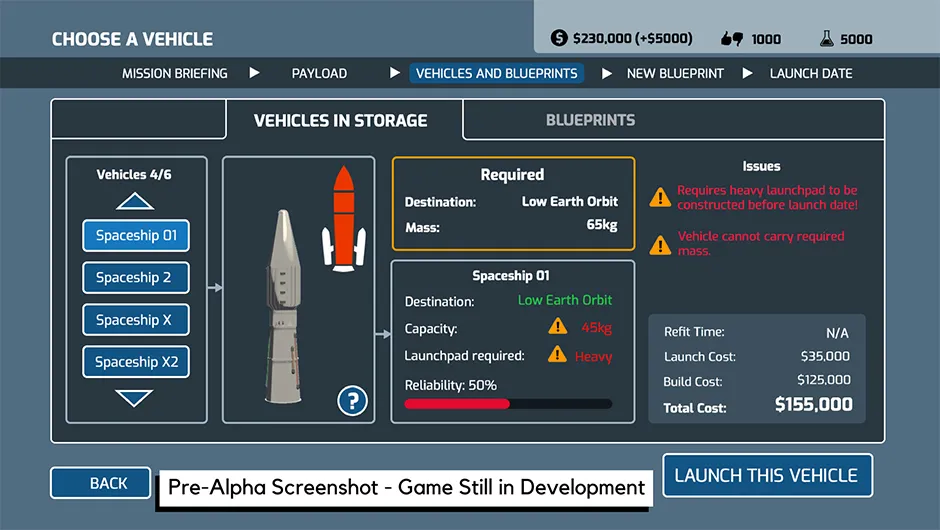The history of the Space Race is fraught with twists and turns, highs and lows, achievements and losses as the US and USSR competed to see who could conquer the unknown frontier surrounding our planet.
But what if you could go back to the mid 1950s and establish your own government space agency, making the decisions, conducting the research and spending the money to put spacecraft and astronauts into Earth orbit and beyond?
This is the premise of a new videogame called Mars Horizon being developed byAuroch Digital, who are based in Bristol in the UK.
Think Sim City for the Space Age, where the player chooses whether to head a US, Russian or European space agency, establishing a space programme with the ultimate goal of reaching Mars.
Along the way the player must develop the infrastructure and science to do so, gaining experience and knowledge as they launch the first artificial satellite, put the first human into space or take the first steps on the Moon.
And just like the real thing, accidents are bound to happen as your astronauts’ oxygen runs low, orbital path drifts off-kilter, or you suddenly find yourself without the fuel to return back to Earth.
Or perhaps you play the long game, slowly building up your experience and testing launches, conducting space walks and zero gravity scientific research so you can get your astronauts back on terra firma in one piece.
Over a period of 100 gameplay years, you guide your space agency through the early stages of development, working with or in spite of your global competitors, eyes on the prize of getting humans to the Red Planet.

Mars Horizon is currently in the latter stages of development, and is expected to be out towards the end of 2018.
The team have benefited from the financial support and expertise of the UK Space Agency.
“They have actually tested the game at various points and have given us fantastic feedback,” says Tomas Rawlings, design director at Auroch Digital.
“When we were developing the game, we were able to bring pen-and-paper prototypes to the UK Space Agency and test those out, as well as the digital versions.
"It’s been really helpful to be able to find out things like the reality of what a space agency does.
Actually being able to talk to someone who does it for real gives the gameplay some of that extra nuance that we might not have been able to include otherwise.”

The game will feature realistic rockets like the Soyuz and Space Shuttle, and be faithful to many of the iconic pieces of technology from the Space Race, including some designs that never saw the light of day.
While Mars Horizon doesn’t involve directly manning spacecraft, as head of mission control you make the decisions as to which rocket to launch, when to conduct a spacewalk, when to give your orbiter a boost to keep it on the right track, or whether to cut off life support to conserve fuel.
"The game doesn’t have to follow reality in terms of what actually happened during the Space Race, but it does follow the reality of what’s actually possible.
So there won’t be warp drives or things like that," says Tomas.
"But take for example the Russians.
They did actually have a Moon landing mission planned, but the Americans got there first.
In this alternative version, maybe you’re playing as the Russians and they do get there first.
"Or maybe the first artificial satellite is launched by an early European space agency.
Maybe they get the first spacewalk, or land the first person on the Moon.
"The game has all these major headline-grabbing milestone missions, but in amongst them there are hundreds of others.
"As you’re running the space agency, it’s your job to manage a range of things like building your base and launch pads, designing rockets and conducting research, which unlocks new technologies that can then be used to power new missions or build new rockets."
A teaser trailer for Mars Horizon. Credit: Auroch Digital
It seems obvious that the events of the Space Race would make for a good story around which to build a video game, but where did the inspiration come from?
"I read a biography of Elon Musk," says Tomas, "and was fascinated by a story of how his first few rocket launches had failed and so he only had enough money to do one more, and if that failed he wouldn’t land the contract.
"That risk-reward is classic gameplay, and it’s something we have included in Mars Horizon.
Do you fund a cheap rocket so you get to your target first and get the accolade, or do you spend more time funding it to build a more reliable rocket, but you might not get there first?
"I also read Andy Weir’s The Martian around that time and I loved the level of science and the detail, and that connected with a longstanding passion of mine about the Universe and space exploration, so it all came together.
We tend to make strategy games, so that was the obvious route to take.
"All the iconic vehicles you would expect are in there, and you can research the path to building them, but we’ve also got things that didn’t quite get there.

So, for example, the Russian equivalent of the Space Shuttle; you can build and deploy those.
"There are multiple paths through the Space Race, you don’t have to follow history.
If someone in the real world seriously contemplated some piece of technology, then it’s valid for us to put it in the game.
"This is a really positive game about space exploration and we’re very much inspired by space, by the development of science and technology, and that’s reflected throughout."
Mars Horizon is due to be released in an early access format via Steam later in 2018, and currently the team at Auroch Digital expect it to appear on the major consoles either around the same time, or early 2019.
